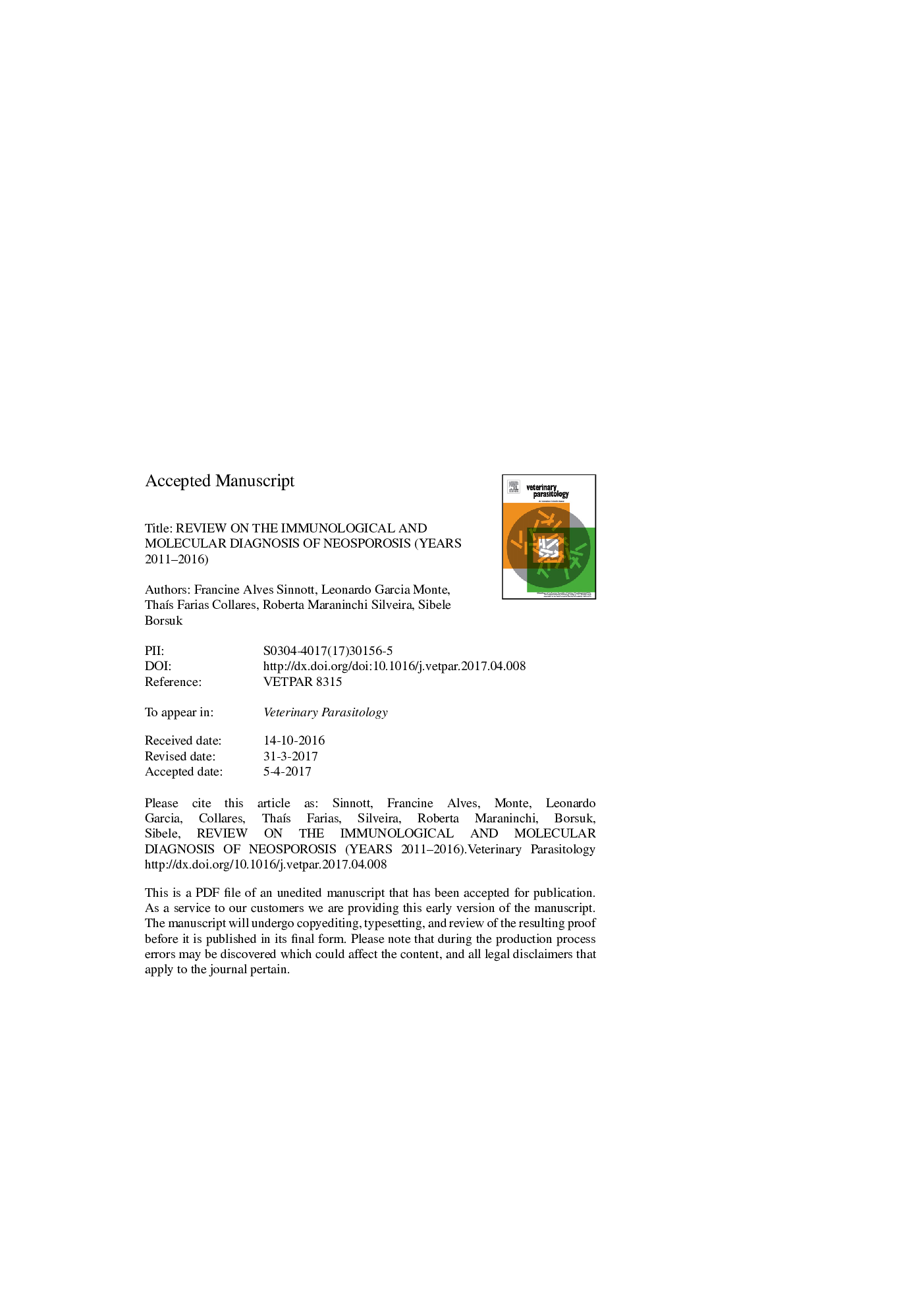| Article ID | Journal | Published Year | Pages | File Type |
|---|---|---|---|---|
| 5545774 | Veterinary Parasitology | 2017 | 32 Pages |
Abstract
Neosporosis, caused by the apicomplexan protozoan Neospora caninum, is a disease which affects a wide range of mammalian hosts (mainly cattle and dogs). N. caninum infection is considered the major cause of livestock abortions worldwide, and therefore is responsible for great losses in the industry. Because there are no effective treatments or vaccines, diagnosis is essential for pathogen control. Studies of N. caninum mechanisms of pathogenesis have led to the identification of new antigens, including NcSRS2, NcSAG1, Ncp40, NcSUB1, NcMIC10, and NcGRAs; and a variety of molecular and immunological assays, based on these molecules, have been proposed to detect N. caninum in tissues or serum samples. We report advances achieved in the last five years in neosporosis control, based on the immunological and molecular diagnostic tests.
Related Topics
Life Sciences
Agricultural and Biological Sciences
Animal Science and Zoology
Authors
Francine Alves Sinnott, Leonardo Garcia Monte, ThaÃs Farias Collares, Roberta Maraninchi Silveira, Sibele Borsuk,
